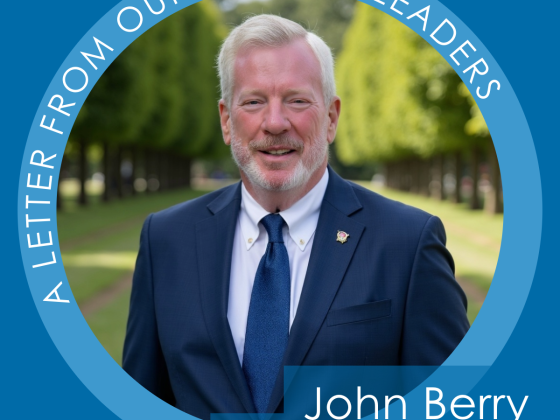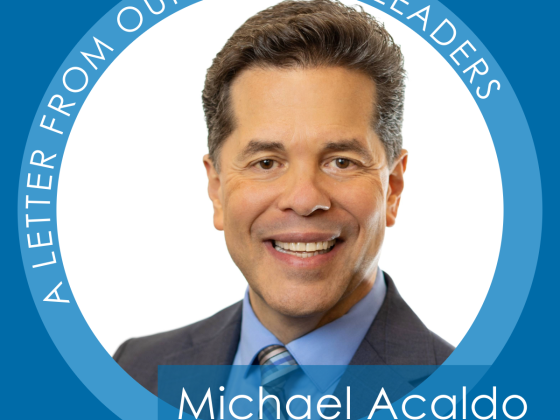A New Year Call to Hope and Action
My Fellow Vincentians,
As we stand at the beginning of a new year, our hearts may be filled with a mixture of emotions. There’s the excitement of new beginnings, the anticipation of fresh starts, and perhaps a touch of apprehension about the challenges that may lie ahead. But amidst these feelings, one constant remains: the enduring power of hope.
Hope is the belief that even in the face of adversity, goodness and redemption are possible. It is the conviction that we can overcome obstacles, heal divisions, and build a more just and compassionate world.
This hope, however, cannot be a passive hope. It must be a hope that is rooted in action, a hope that translates into tangible efforts to make our world a better place.
This year, SVdP USA will be taking new and stronger action to channel our hopes into concrete actions. With the opening of our second National Office in Washington, DC in February, we will be creating a base for increasing our efforts to advocate on behalf of those we serve, and turning our focus more intensely towards the pressing issues of our time, particularly the scourge of poverty and homelessness that afflicts far too many of our fellow Americans.
The stark reality is that millions of our brothers and sisters struggle to meet their basic needs. They lack access to affordable housing, nutritious food, and quality healthcare. Children go to bed hungry, families are forced to live on the streets, and countless individuals are trapped in a cycle of poverty that seems impossible to break.
This is a crisis of conscience for our nation. It is a stark reminder that our pursuit of individual prosperity cannot come at the expense of the common good. We are called, as followers of Christ, to be our brothers’ and sisters’ keepers. We are called to love our neighbors as ourselves.
How can we translate our hopes and dreams into meaningful action?
First and foremost, we must open our eyes and our hearts to the suffering around us. We must acknowledge the realities of poverty and homelessness in our own communities. We must listen to the stories of those who are struggling, and we must seek to understand their experiences. In our encounters with those we serve, we must listen with a Servant Heart — not only hearing the facts and numbers associated with the support we give, but hearing their hopes, dreams, and the stories that make them who they are. We cannot help if we do not understand. And we cannot understand if we do not listen.
Secondly, we must challenge the systems and structures that perpetuate poverty. We must advocate for policies that provide affordable housing, living wages, and access to quality education and healthcare for all. We must support organizations that are working to address the root causes of poverty, such as systemic racism and economic inequality. That will be the role of our Washington, DC office and staff. To work with USCCB, Congress, and like-minded nonprofits to drive the change needed to address poverty at its source.
And finally, we must cultivate a spirit of solidarity and collective action. We must recognize that we are all interconnected, and that the well-being of each of us is dependent on the well-being of all. We must work together to build a society where everyone has the opportunity to thrive.
The task before us is daunting, but not insurmountable. We cannot solve the problems of poverty and homelessness overnight. But we, each and every one of us, can make a difference. We can be a force for good in the world. We can build a more just and compassionate society, a society where everyone has the opportunity to live a life of dignity and hope.
Let us, therefore, embrace this new year with renewed hope and a renewed commitment to action. Let us strive to be instruments of God’s love and mercy in the world. Let us work together to build a beloved community where all are welcome, where all are valued, and where all have the opportunity to flourish.
Peace and God’s Blessings,
John
John Berry
National President



Nicely stated, John!